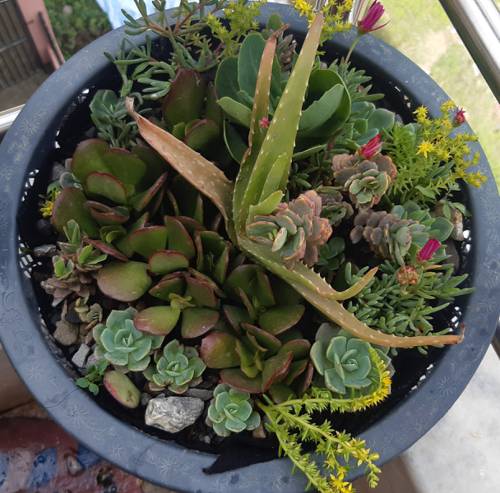
FAQ About Psychological Benefits of Indoor Plant Interaction

What are the psychological benefits of interacting with indoor plants?
Interacting with indoor plants can lead to several psychological benefits, including improved mood, reduced stress levels, and increased feelings of calmness and relaxation. The presence of plants in indoor spaces has been linked to enhanced concentration and productivity, as well as a boost in creativity. This is often attributed to the calming effect of nature and the biophilic tendency of humans to connect with life and lifelike processes.

How do indoor plants help reduce stress and anxiety?
Indoor plants help reduce stress and anxiety by providing a natural element in the environment that promotes relaxation and calmness. Studies have shown that engaging with plants, such as through gardening or simply having them in your space, can lower physiological stress indicators like heart rate and blood pressure. Additionally, the act of caring for plants can be mindful and meditative, offering an opportunity for stress relief.

Can indoor plants improve concentration and productivity?
Yes, indoor plants can improve concentration and productivity. Research indicates that the presence of plants in the workspace or learning environments can help increase attention span and mental clarity, leading to improved cognitive performance. The natural element that plants bring into a space can enhance one's ability to focus and complete tasks more efficiently.

Do indoor plants help with mental health conditions such as depression?
While indoor plants are not a substitute for professional mental health treatment, they can be a complementary approach to improving mental well-being. The presence of plants can provide comfort and a sense of connection with nature, which may help alleviate mild symptoms of depression by enhancing mood and providing a sense of purpose through plant care.

Is there a scientific basis for the benefits of plant interaction on mental health?
Yes, there is scientific evidence supporting the benefits of plant interaction on mental health. Numerous studies highlight the positive effects that indoor plants have on psychological well-being, such as reduced stress levels and improved mood. The concept of biophilia, which is the innate tendency to connect with nature, supports these findings by explaining why humans generally feel better in the presence of natural elements.

How do indoor plants influence creativity?
Indoor plants can boost creativity by providing a stimulating environment that encourages creative thinking. The natural patterns and colors in plants can inspire new ideas and perspectives. Additionally, plants contribute to a tranquil atmosphere, reducing mental fatigue, and allowing for a free flow of thoughts essential for creativity.

What types of indoor plants are best for promoting well-being?
Certain indoor plants are particularly effective at promoting well-being. For example, peace lilies and snake plants are known for their air-purifying qualities, while lavender and jasmine are reputed for their calming scents. Plants like English ivy and bamboo palm can also improve air quality and are associated with relaxation and stress reduction.

How does caring for plants impact mindfulness?
Caring for plants can enhance mindfulness by requiring attention and presence in the present moment. The act of watering, pruning, and observing plant growth can be meditative, encouraging individuals to focus on the task at hand and detach from daily stressors. This practice can lead to increased awareness and a sense of tranquility.

Can indoor plants improve air quality and how does this affect mental health?
Indoor plants can improve air quality by absorbing carbon dioxide and releasing oxygen, as well as removing toxins from the air. This can lead to a more pleasant and healthy environment, which may have positive effects on mental health by reducing symptoms associated with poor air quality, such as headaches and fatigue, thereby promoting general well-being.

Are there any common misconceptions about indoor plants and mental health?
A common misconception is that indoor plants can completely cure mental health issues. While they do provide psychological benefits and can contribute to a better mood and reduced stress, they should not be seen as a replacement for professional mental health care when needed. Another misconception is that all plants have the same psychological benefits, whereas different plants may offer different advantages.

How does having plants in the home environment compare to natural outdoor environments?
While natural outdoor environments provide a broader range of sensory experiences that can enhance well-being, indoor plants offer a convenient way to incorporate elements of nature into indoor spaces. Both settings offer psychological benefits, but indoor plants allow for consistent daily interaction with nature, which can be particularly beneficial in urban or indoor-centric lifestyles.

What role does the biophilia hypothesis play in understanding plant interactions?
The biophilia hypothesis suggests that humans have an inherent tendency to seek connections with nature and other forms of life. This hypothesis underpins the understanding of why interactions with plants can lead to psychological benefits, as engaging with these natural elements satisfies an innate need to affiliate with life, reducing stress and enhancing emotional health.

Can introducing indoor plants to corporate environments benefit employees' mental health?
Introducing indoor plants to corporate environments can have positive effects on employees' mental health. Plants in the workplace are associated with reduced stress, improved mood, and increased productivity. They can create a more pleasant and calming work environment, which can lead to better job satisfaction and overall well-being.

Are there specific activities with plants that enhance psychological well-being more than others?
Specific activities such as planting, repotting, and even simple tasks like watering can enhance psychological well-being by promoting mindfulness and offering a sense of accomplishment. Engaging in these activities provides an opportunity for a break from routine stressors, facilitating a mental reset and improving one's mood.

Can indoor plants help improve sleep quality?
Certain indoor plants can improve sleep quality by purifying the air and releasing oxygen, as well as providing calming scents. Plants like lavender and jasmine are known for their relaxing effects and can promote better sleep. Additionally, the presence of plants can lead to a more tranquil environment conducive to restful sleep.

How do indoor plants affect children's mental development and psychological health?
Indoor plants can positively influence children's mental development and psychological health by fostering a connection with nature, which is linked to cognitive benefits, emotional well-being, and creativity. Engaging children in plant care can teach them responsibility and encourage curiosity about the natural world.

Do indoor plants contribute to a more positive social atmosphere?
Indoor plants can contribute to a positive social atmosphere by creating a more inviting and comforting environment. Spaces with plants are often seen as more aesthetically pleasing and relaxing, which can enhance social interactions and encourage a sense of community. Additionally, discussing or caring for plants together can foster bonding and cooperation.

What are the effects of indoor plant interaction on people with high-stress professions?
For individuals in high-stress professions, interacting with indoor plants can provide micro-breaks from the stress of the job, helping to reduce stress levels and prevent burnout. The calming presence of plants and the act of caring for them can offer a quick mental reset, leading to better focus and vitality throughout the day.

How frequently should one interact with indoor plants to experience psychological benefits?
While there is no definitive frequency for interacting with indoor plants to experience psychological benefits, regular engagement can amplify the positive effects. Daily interaction is ideal, as it allows for consistent exposure to the calming and restorative elements of nature found in plants. Simply spending a few minutes caring for or observing plants each day can be beneficial.

What scientific studies support the psychological benefits of indoor plant interaction?
Several scientific studies support the psychological benefits of interacting with indoor plants. For instance, research published in the Journal of Environmental Psychology highlights how plants can reduce stress and improve mood. Another study from the University of Exeter found that productivity can increase by up to 15% in workplaces that incorporate indoor plants. Numerous other studies confirm these results, indicating a broad consensus on the topic.
